Poetry of the Company: Anglo-Indian Poetry
There is a popular misconception that Anglo-Indian (a term used for people of British origin living in India) poetry began with Rudyard Kipling and his works written in the late nineteenth century. But poetical works written in and about India are as old as Britain's history with India.
The British presence was established in the Indian subcontinent by the early eighteenth century. The East India Company was dominant in the Bengal region by the 1760s and in the majority of India by the early nineteenth century, followed by the formation of the British Raj in the 1850s. With the East India Company came soldiers, civil servants, lawyers, and others trying to make a fortune for themselves. These ex-patriots would have found India exotic and strange, which in turn inspired some to write poetry about their new surroundings and experiences.
This small group of colonial literati published their individual poems in local journals or had whole volumes printed by publishing houses in Calcutta or Bombay. They tried to emulate their more famous poet counterparts back in England, and in some cases dedicated their works to them. For the first half of the nineteenth century Anglo-Indian poetry was seen as amateur and not taken very seriously by either the writers themselves or the critics; as shown in the dedication of John Malcolm's Miscellaneous Poems, "The Author of this short Poem is aware, that he repeats a very common-place Preface ... when he states, that it was written without the remotest view to Publication." In the second half of the nineteenth century, attempts were made to categorize "British-Indian poetry" but it was still viewed as amateurish and sentimental. It was not until the twentieth century that Anglo-Indian poetry was systematically described and studied as a literature.
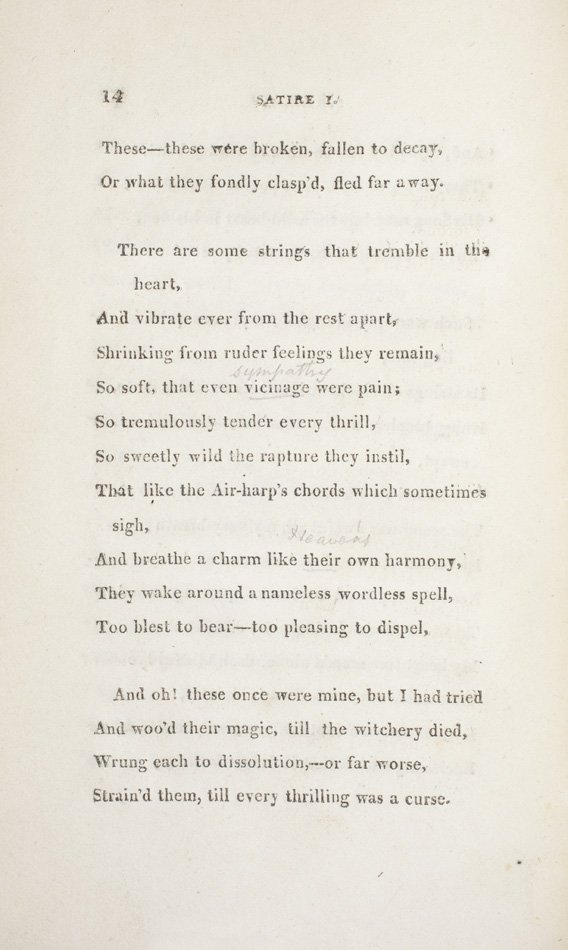
Calcutta: Printed for the author, by P. Crichton, 1819
On loan from Deborah Wachs Barnes, Sharon Wachs Hirsch, Judith Pieprz, and Joel Wachs, AB'92
A scarce collection of seven poems printed in Calcutta which consists of character sketches drawn from Anglo-Indian social and military circles. According to a brief introduction, all but one of these satires was published in the Asiatic Mirror in 1817. "The author . . . is said to be a Subaltern of Native Infantry; anything further relating to him can scarcely be deemed necessary here, but to his few friends and acquaintances, it is certain, that he never attempted to conceal the heinous indiscretion of his having employed some of his frequent leisure hours in such composition. When these first appeared, it is mentioned that several individuals applied some of the more satirical illustrations of character to themselves, and were even silly enough to evince their sense of such application."
Wachs No. 684
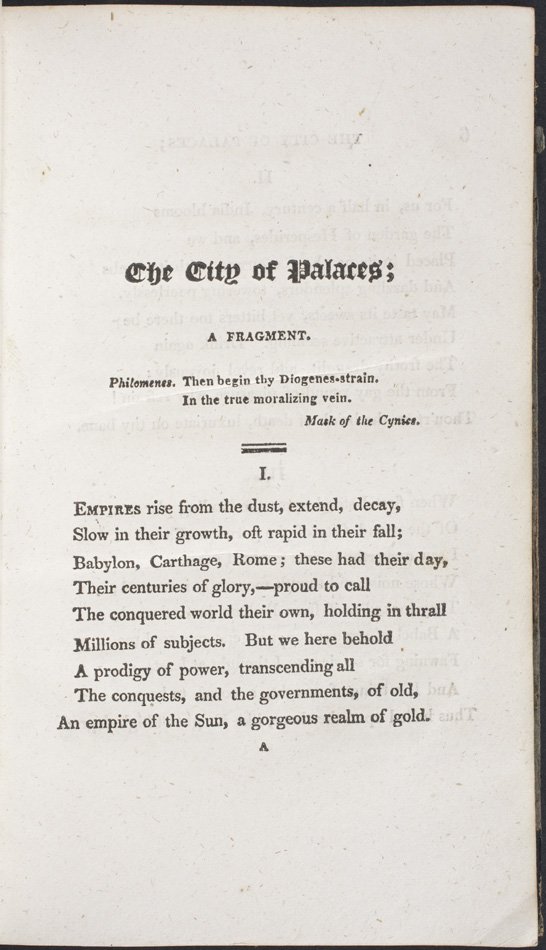
James Atkinson (1780-1852)
Calcutta: printed at the Government Gazette Press, 1824
On loan from Deborah Wachs Barnes, Sharon Wachs Hirsch, Judith Pieprz, and Joel Wachs, AB'92
Atkinson studied medicine at Edinburgh and London, and in 1805 took a post as a medical officer in the Bengal service. His duties in India were not arduous, and he devoted himself to the study of Persian and other languages. The title-poem here is a vivid description of Calcutta, based upon the author's own observations. Three other poems have to do with Lord Minto, the former governor-general. This collection of original verse displays throughout the influence of Byron, most particularly in a long piece entitled "Peer Mahommud; The Moralist."Wachs No. 661
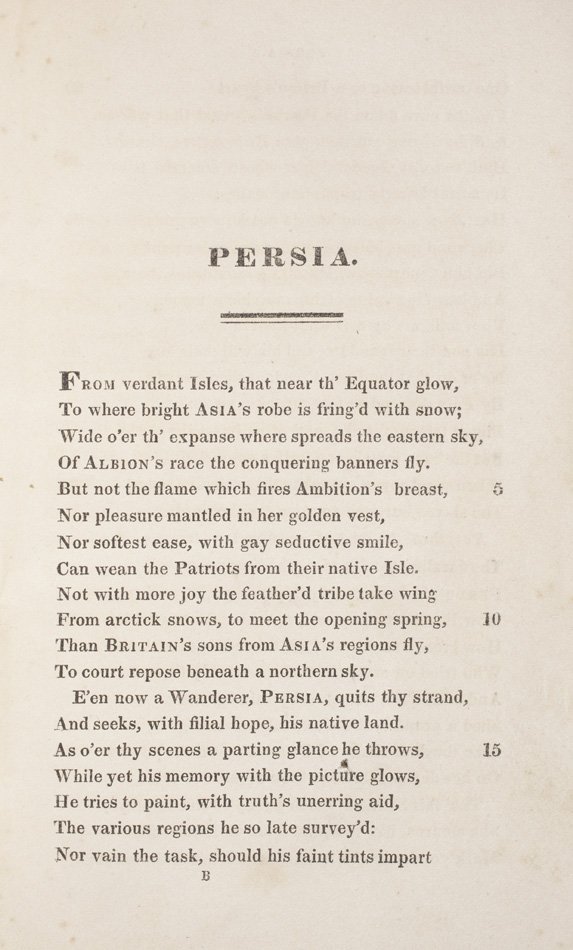
[John Malcolm (1769-1833)]
Bombay: printed at the American Mission Press, 1829
Gift of Deborah Wachs Barnes, Sharon Wachs Hirsch, Judith Pieprz, and Joel Wachs, AB’92
Malcolm, a soldier in the Indian Army from a very early age, later served as an officer and diplomat in various postings in the Middle East and India. When he returned to England in 1811, he wrote histories and other literary works, including this selection of poems.
Wachs No. 353
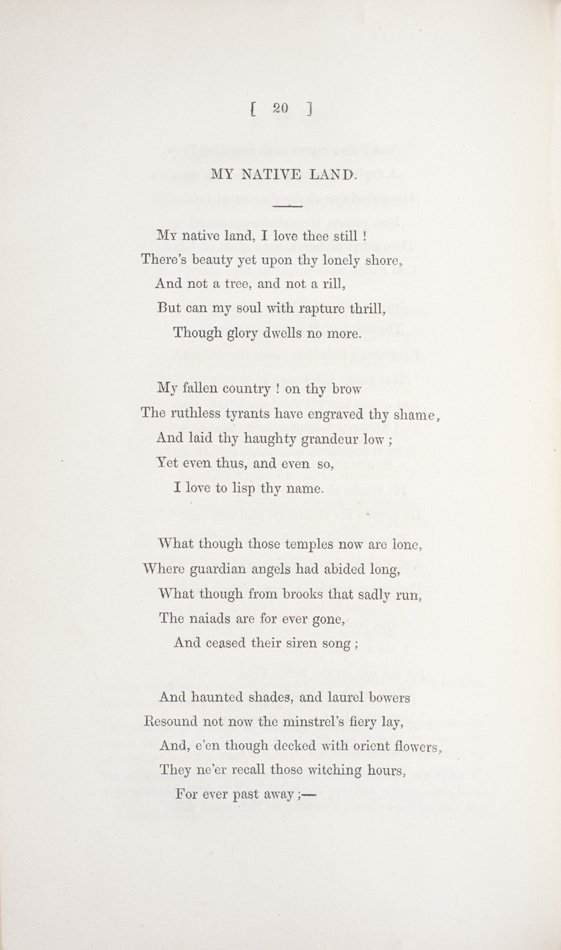
Shoshee Chunder Dutt
Calcutta: printed by Sanders, Cones and Co., 1848
Gift of Deborah Wachs Barnes, Sharon Wachs Hirsch, Judith Pieprz, and Joel Wachs, AB’92
Dutt was an accomplished Indian writer who also wrote under English pseudonyms. This volume, one of his better known works, was part of a collection belonging to James Ramsay, 1st Marquess of Dalhousie, who was governor-general of India. The printed dedication is to his wife.
Wachs No. 271
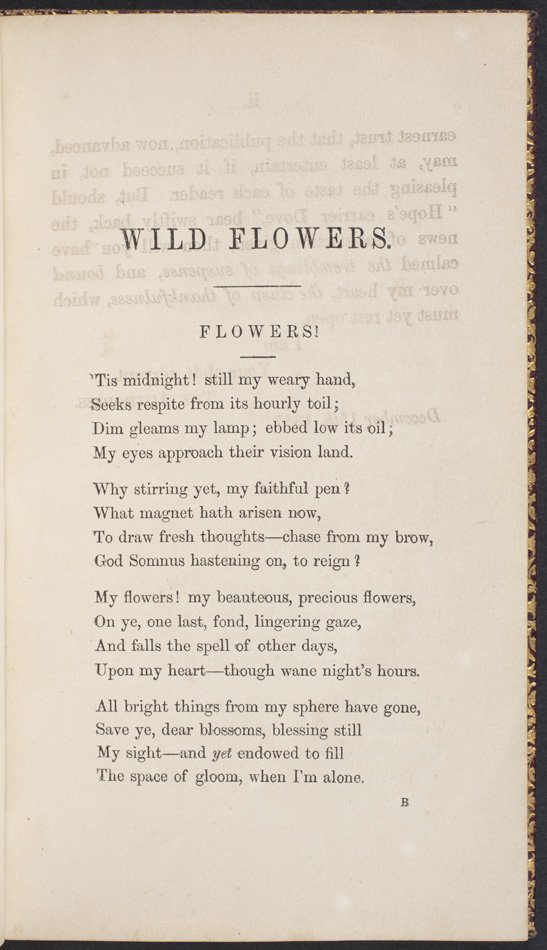
[Julia Mercado]
Calcutta: Printed and published by D’Rozario & Co., 1858
Gift of Deborah Wachs Barnes, Sharon Wachs Hirsch, Judith Pieprz, and Joel Wachs, AB’92
A volume of Anglo-Indian poems and sketches, at the front is a presentation leaf, printed in gold, and filled out by the author for a Mr. Forrester. There are no other known copies of this work.
Wachs No. 527
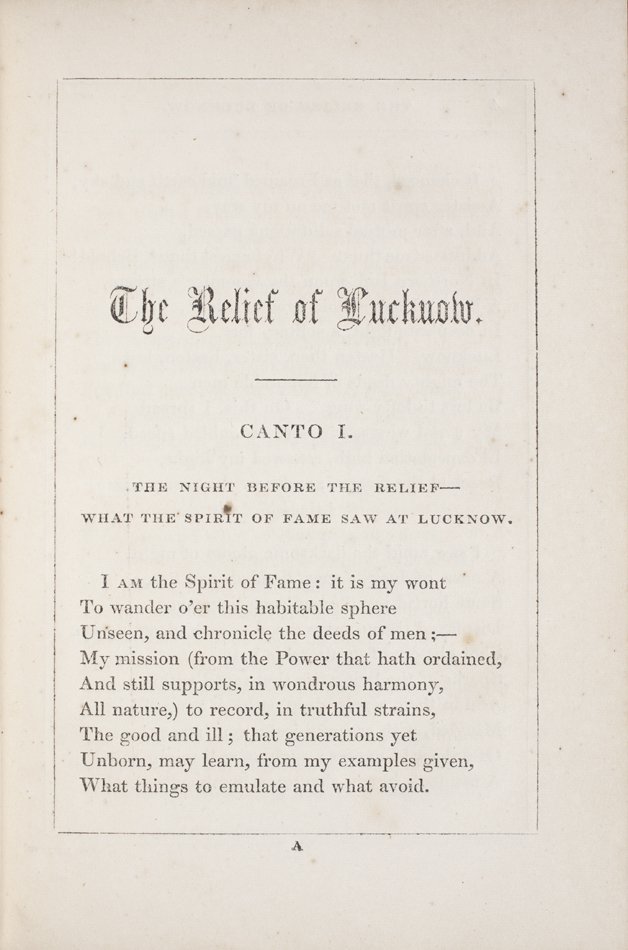
Stephen Henry Sharman
London: Hamilton, Adams, and Co., 1858
Gift of Deborah Wachs Barnes, Sharon Wachs Hirsch, Judith Pieprz, and Joel Wachs, AB’92
The title poem, which runs to page 62, celebrates one of the most dramatic episodes of the Indian Mutiny, which had just taken place. The author, who was possibly a schoolmaster in Great Baddow, near Chelmsford, was not himself in India, but his verse represents the great outpouring of feeling with which Victorian England responded to the unsettling events in "the Jewel of the Crown." The book is dedicated, with permission, to Lady Havelock, widow of one of the military heroes of the Mutiny.
Wachs No. 711
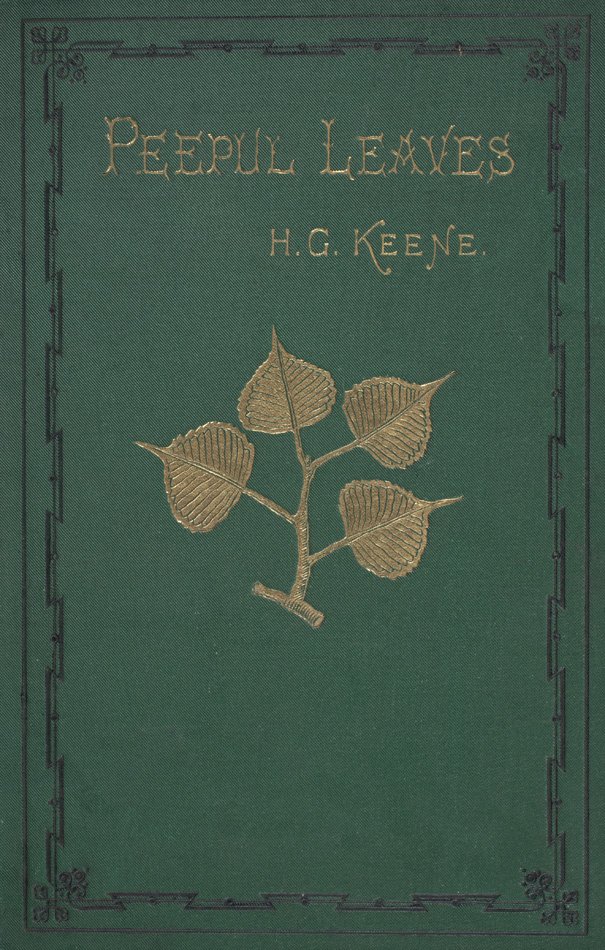
Henry George Keene
London: W. H. Allen and Co., 1879
Gift of Deborah Wachs Barnes, Sharon Wachs Hirsch, Judith Pieprz, and Joel Wachs, AB’92
The author was the son of a noted Persian scholar, also named Henry George Keene (1781-1864), who was professor of Arabic and Persian at the East India College at Hailesbury. The younger Keene, born in 1825, worked most of his life as an administrator in India, and published numerous historical volumes, guidebooks, reminiscences, etc., as well as several other volumes of verse.
Wachs No. 681
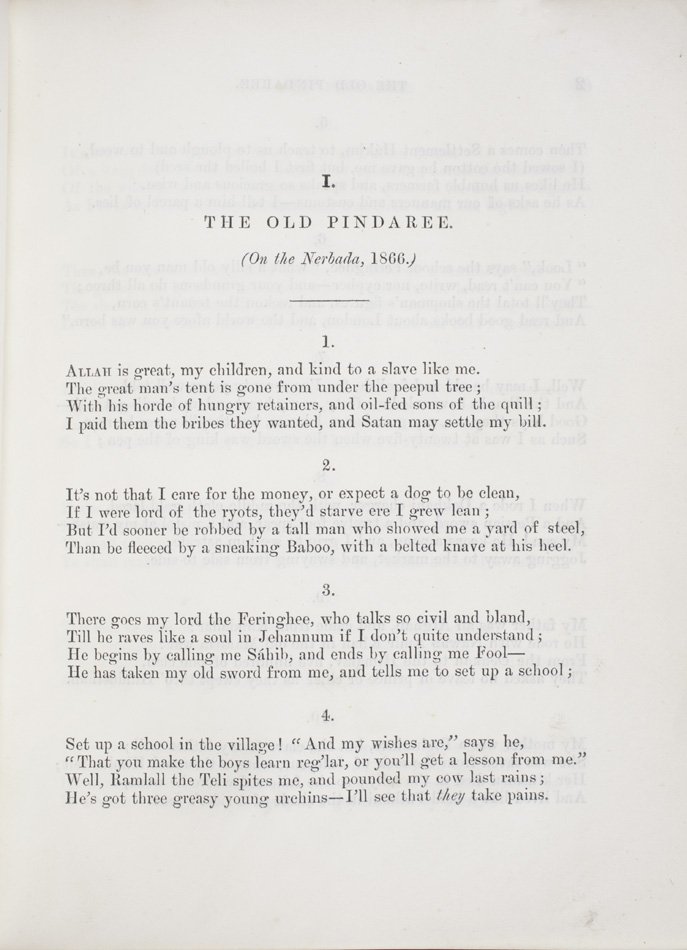
[Alfred Comyn Lyall (1835-1911)]
[S.l.: s.n., 1880]
Gift of Deborah Wachs Barnes, Sharon Wachs Hirsch, Judith Pieprz, and Joel Wachs, AB’92
This edition is a previously unrecorded and anonymous version of the author's only book of poems. This presentation copy is inscribed on the front wrapper, "Fred. Roberts from A. C. L. Simla, October, 1880." The recipient was Frederick Sleigh Roberts, later Field-Marshal Earl Roberts of Kandahar, who marched on Kandahar in 1880. Lyall, who was at the time foreign secretary to the Indian government, was one of the chief negotiators in the Kabul and Kandahar talks which followed Roberts's victory. A comparison of the text with a subsequent Indian printing (also in this case) reveals that all the present text has been preserved, except for one piece, the verse on Badminton.
Wachs No. 222
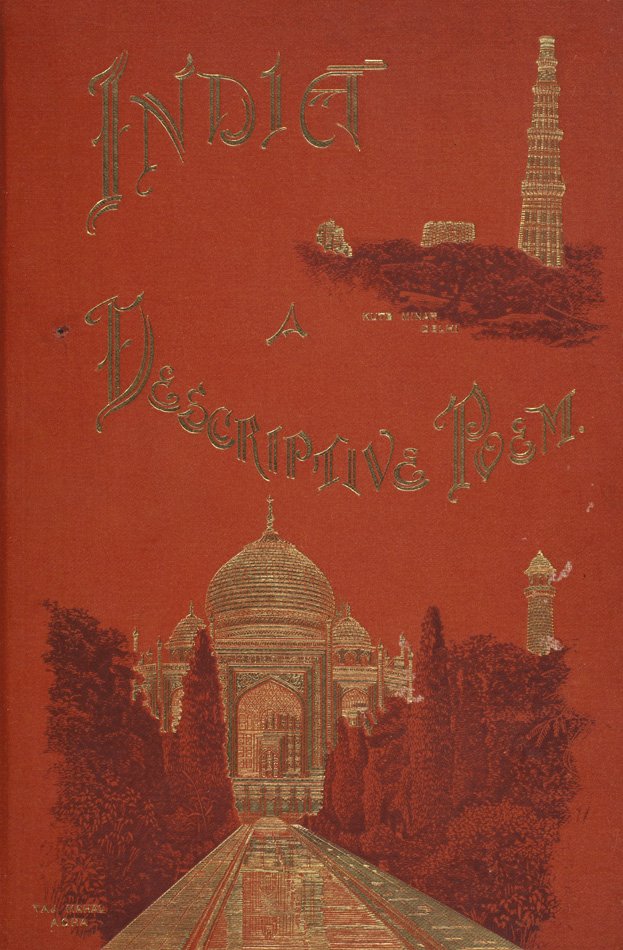
H. B. W. Garrick
London: Trübner & Co., 1889
Gift of Deborah Wachs Barnes, Sharon Wachs Hirsch, Judith Pieprz, and Joel Wachs, AB’92
A presentation copy, inscribed on the verso of the half-title, "To the Earl of Lytton, with the author's comps. and best wishes. 17th March, 1919." The recipient was the son of the poem's dedicatee, the first Earl of Lytton, poet, statesman, and Viceroy and Governor-General of India; the son was born in Simla in 1876, and himself had a long involvement with Indian affairs, including a term as Governor of Bombay, beginning in 1922. Garrick was a government archaeologist in India and his long poem in Spenserian stanzas narrates the history of the country in which he spent many years of his life.
Wachs No. 679
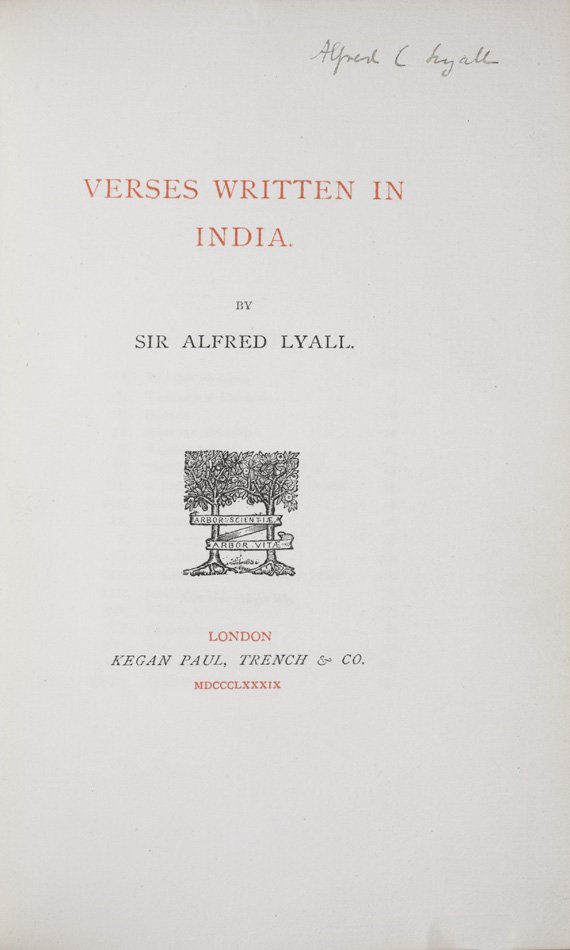
Alfred Comyn Lyall (1835-1911)
London: Kegan Paul, Trench and Co., 1889
Gift of Deborah Wachs Barnes, Sharon Wachs Hirsch, Judith Pieprz, and Joel Wachs, AB’9
First published edition. Lyall's signature appears on the title-page. Of the 25 poems in the preceding Indian edition, three have been omitted, and two new poems added; virtually all the remaining poems show some sign of revision.
Wachs No. 153
